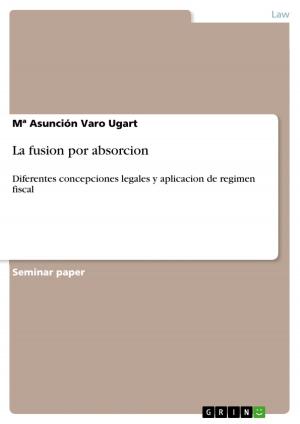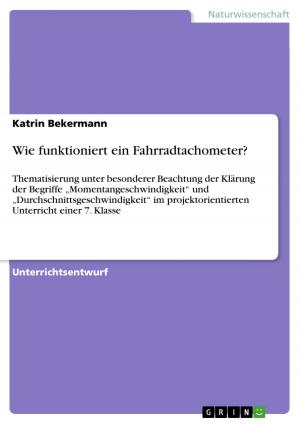| Author: | Markus Schneider, Denis Wippler | ISBN: | 9783638310123 |
| Publisher: | GRIN Publishing | Publication: | September 29, 2004 |
| Imprint: | GRIN Publishing | Language: | English |
| Author: | Markus Schneider, Denis Wippler |
| ISBN: | 9783638310123 |
| Publisher: | GRIN Publishing |
| Publication: | September 29, 2004 |
| Imprint: | GRIN Publishing |
| Language: | English |
Seminar paper from the year 2004 in the subject English Language and Literature Studies - Linguistics, grade: 2- (B-), University of Bamberg (Chair for english language science and the middle ages), course: PS II: Contrastive Linguistics English - German, language: English, abstract: In language we often use comparison in order to express similarity ('He looks like you') and difference ('He doesn't look like you') or equality ('He is as good as you') and inequality ('He is better than you'). There are a lot of similarities in the English and the German language concerning comparison, so we are going to have a contrastive look at this phenomenon to find out some of the differences. We have worked through several grammar books and noticed that every author has or had his own opinion about comparison. In almost every book comparison is structured in a different way, but never in direct comparison to the German language, so we decided to design our own contrastive structure. This work focuses on the adjective and the adverb, and on how different degrees of comparison are created. The literature used by the authors was, for English matters mainly 'A Comprehensive Grammar of the English Language' by Quirk, et al., furthermore, Lamprecht´s 'Grammatik der englischen Sprache'. For reference in German we made use of two editions of the 'Duden Volume 4: Grammatik der deutschen Gegenwartssprache'.
Seminar paper from the year 2004 in the subject English Language and Literature Studies - Linguistics, grade: 2- (B-), University of Bamberg (Chair for english language science and the middle ages), course: PS II: Contrastive Linguistics English - German, language: English, abstract: In language we often use comparison in order to express similarity ('He looks like you') and difference ('He doesn't look like you') or equality ('He is as good as you') and inequality ('He is better than you'). There are a lot of similarities in the English and the German language concerning comparison, so we are going to have a contrastive look at this phenomenon to find out some of the differences. We have worked through several grammar books and noticed that every author has or had his own opinion about comparison. In almost every book comparison is structured in a different way, but never in direct comparison to the German language, so we decided to design our own contrastive structure. This work focuses on the adjective and the adverb, and on how different degrees of comparison are created. The literature used by the authors was, for English matters mainly 'A Comprehensive Grammar of the English Language' by Quirk, et al., furthermore, Lamprecht´s 'Grammatik der englischen Sprache'. For reference in German we made use of two editions of the 'Duden Volume 4: Grammatik der deutschen Gegenwartssprache'.















